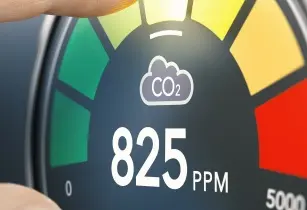The Minister of Forestry, Fisheries and the Environment, Barbara Creecy, has announced that Eskom has been granted an exemption from the lengthy process required to amend its Atmospheric Emission License, subject to certain strict conditions
The exemption in terms of Section 59 of the National Environmental Management: Air Quality Act (NEMAQA) was granted on 14 March in response to an application the Minister had received in relation to the Kusile Power Station. The application had been brought due to the urgent need to alleviate the electricity crisis in the country.
“Eskom’s request pertains to a temporary solution to restore lost generation capacity at its Kusile Power Station while a damaged stack undergoes repairs which are due for completion in December 2024. In the interim, Eskom plans to construct the temporary stacks by November 2023, which it anticipates will allow the resumption of generation capacity of 2100MW which will reduce the country’s exposure to load shedding by two levels,” said the Minister.
The temporary solution proposed for Kusile envisages that Eskom will operate the temporary stacks without the use of the Flue Gas Delsuphurisation mechanism.
The temporary solution proposed for Kusile envisages that Eskom will operate the temporary stacks without the use of the Flue Gas Delsuphurisation mechanism for a period of 13 months. This is likely to result in increased sulphur dioxide emissions during this period, in excess of the current applicable limit contained in Kusile’s Atmospheric Emission License.
Eskom will now need to apply to the National Air Quality Officer for a once-off postponement with the compliance timeframes for minimum emission standards for new plants. The once-off postponement with the compliance timeframes for minimum emission standards for new plants can only be valid until 31 March 2025, in terms of the applicable regulations.
Minister Creecy says she is aware of the well-documented socio-economic impacts of loadshedding which have had far reaching socio-economic consequences for all South Africans. “I am equally aware of the health and associated impacts of exposure to sulphur dioxide emissions, particularly on communities in close proximity to coal-fired power stations,” said the Minister. “In the light of the competing factors, I have been called on to make an extraordinarily difficult decision."
Accordingly, the exemption has been granted in terms of section 59(1) of NEMAQA subject to the following conditions:
Eskom must issue a public notice in two national newspapers explaining reasons for their application;
Eskom must conduct a public participation process subject to a curtailed timeframe of 14 days;
Eskom must account to Minister Creecy and the Portfolio Committee on Forestry, Fisheries and the Environment in the National Assembly on the progress of its repair to the west stack; and
Eskom must undertake measures to mitigate against the exposure of its employees and surrounding communities to harm which, at a minimum, must include independent health screenings and referral to appropriate public health facilities for treatment where necessary.








